The historical alignment between nations like France and Türkiye may create an opportunity for a new ethical consensus.
The historical alignment between nations like France and Türkiye may create an opportunity for a new ethical consensus.
The international environment is shifting. Diplomatic leaders, formerly silent or high-level observers, are adopting concrete measures from legal accountability to state recognition. Yet humanitarian despair continues to deepen on the ground. Despite these efforts, decades-old violence persists, and peace remains a fragile prospect.
French Foreign Minister Jean‑Noël Barrot has emphasized the urgency of these measures and reaffirmed France’s commitment to recognizing Palestine within a “collective movement” among allies. On July 24, 2025, President Emmanuel Macron officially declared that France will recognize the State of Palestine at the upcoming UN General Assembly in September, becoming the first G7 country to take this step. Macron reaffirmed his commitment to a two‑state solution, linking recognition to the future demilitarization of Hamas and ensuring Israel’s security.
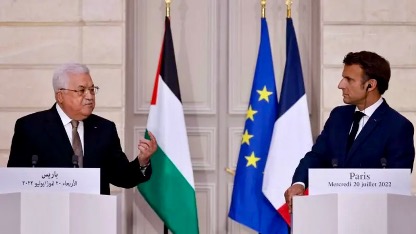
France Moves for the Moral Compass of Palestine Solidarity
France and Saudi Arabia will co-host a UN conference in New York on July 28–29, 2025, aimed at promoting the two-state solution, including hostages’ release, Hamas disarmament, PA reform, and Gaza reconstruction. Meanwhile, The Hague Group, created in early 2025, convened a major summit in Bogotá (mid-July), with over 30 countries agreeing to six concrete legal and institutional steps such as arm embargoes on Israel, blocking military shipments, and supporting ICC investigations.
The International Criminal Court (ICC) has issued arrest warrants for Israeli leaders, including the Prime Minister and defense minister, prompting condemnation from Israeli allies and support from Hague Group member states committed to enforcing international law.
Indeed, hard to believe that, but France is moving decisively toward diplomatic recognition of Palestine aligned with calls for humanitarian relief, political dialogue, and regional stability. Macron frames this not as political opportunism, but as a moral imperative and basis for lasting peace.
Türkiye’s Unyielding Support for Palestine
In the midst of a fractured and often polarized global response to the humanitarian crisis in Palestine, one nation’s consistent voice has echoed through the years with resolute clarity: Türkiye. From humanitarian aid to diplomatic advocacy, Türkiye’s unwavering support for the Palestinian cause is a cornerstone of its foreign policy and moral compass. Yet, despite the depth of this solidarity, a curious silence frequently surrounds it particularly on international social media platforms, where Türkiye’s efforts are either downplayed, misrepresented, or altogether ignored.
Türkiye’s connection to Palestine is not a product of recent geopolitical calculations. It is rooted in historical, cultural, and religious bonds that stretch back centuries, particularly during the Ottoman era, when Jerusalem held a special administrative and spiritual status. But in modern times, this solidarity has taken powerful, tangible forms.
At the 2009 World Economic Forum in Davos, Turkish President Recep Tayyip Erdoğan confronted Israeli President Shimon Peres during a heated debate on Gaza, saying: “When it comes to killing, you know very well how to kill.” Erdoğan then walked off the stage.
From Mavi Marmara to Modern-Day Aid
Perhaps the most iconic symbol of Türkiye’s commitment came in 2010 with the Mavi Marmara incident. The Turkish-led flotilla, part of the “Gaza Freedom Flotilla,” aimed to break the Israeli blockade and deliver humanitarian aid directly to the people of Gaza. The Israeli military’s deadly raid on the ship, which resulted in the killing of 10 Turkish activists, shocked the world and further deepened the rift between Ankara and Tel Aviv. Far from weakening Türkiye’s stance, the tragedy cemented its moral alignment with the Palestinian struggle.
This support has not been a one-time gesture. It is ongoing and multifaceted. Just days ago, Türkiye’s Disaster and Emergency Management Authority (AFAD) delivered crucial supplies including medical equipment, food, and shelter materials to Gaza amidst escalating violence. In a region where every item that reaches civilians can mean the difference between life and death, such aid is more than charity it is a declaration of shared humanity.
Despite Türkiye’s visible actions and consistent stance, there is a disturbing pattern: these efforts rarely receive proportional visibility on global social media platforms. Posts highlighting Türkiye’s aid missions or diplomatic advocacy for Palestine are often shadow-banned, deprioritized, or drowned in a tide of algorithmic indifference. While influencers and official accounts from other nations trend easily when discussing Palestine, Türkiye’s voice too frequently gets buried.
Turkish leaders, including President Recep Tayyip Erdoğan have repeatedly used the world stage to call out what they see as injustices in Gaza, West Bank, and beyond. For many Turks, the Palestinian struggle is not a foreign issue it is a personal one. It speaks to their sense of justice, their historical identity, and their vision of regional peace rooted in dignity and mutual respect.
This bond also informs Türkiye’s vision for peace in the Middle East. Unlike other actors whose support may be filtered through geopolitical interests or temporary alignments, Türkiye’s commitment to Palestine is framed as part of a broader push for a fair, lasting resolution one that includes an end to occupation, respect for international law, and the establishment of a sovereign Palestinian state.
Conclusion
The shifting global response to the Palestinian issue, most recently marked by France’s recognition of the State of Palestine signals a notable turn in international diplomacy. Yet beyond these new diplomatic initiatives lies a longstanding moral posture exemplified by Türkiye, whose unwavering support for the Palestinian cause predates today’s headlines. This support, deeply rooted in Ottoman memory, Islamic solidarity, and a modern ethos of justice, has consistently defied the moral ambiguity that often characterizes international politics. From the symbolic resistance at Davos to the bloodied decks of the Mavi Marmara, Türkiye has embraced a role not merely as an ally, but as a moral witness. In a world where political interests frequently eclipse human dignity, Türkiye’s commitment reminds us that solidarity is not always about visibility, it is about constancy.
As Palestine’s struggle continue both diplomatically and in the streets of Gaza, this historical alignment between nations like France and Türkiye may create an opportunity for a new ethical consensus. But until true sovereignty and justice are achieved, solidarity must not be performative, but transformative. We may not know what France will do tomorrow, but until Palestine is free, Türkiye will continue to stand firm.
References
Erdoğan, R. T. (2009). World Economic Forum Davos speech. [Transcript].
Finkelstein, N. (2010). This Time We Went Too Far: Truth & Consequences of the Gaza Invasion. OR Books.
Gençoğlu, H. (2024). Batı’nın Afrika Talanı. İstanbul: Kronik Yayınları
Güçlü, Y. (2013). “Turkey and the Palestinian Issue: Past and Present.” Middle Eastern Studies, 49(2), 267–282.
International Criminal Court. (2025). Statement on arrest warrants issued regarding Gaza conflict. [Press release].
Macron, E. (2025). Speech on Palestine Recognition at Élysée Palace, 24 July 2025.
Mearsheimer, J. & Walt, S. (2007). The Israel Lobby and U.S. Foreign Policy. Farrar, Straus and Giroux.
Nour, M. (2021). “The Legacy of Ottoman Palestine in Turkish Foreign Policy.” Journal of Islamic and Middle Eastern Studies, 13(1), 45–63.
Pappé, I. (2006). The Ethnic Cleansing of Palestine. Oneworld Publications.
Shlaim, A. (2009). Israel and Palestine: Reappraisals, Revisions, Refutations. Verso Books.
Yavuz, M. H. (2010). Secularism and Muslim Democracy in Turkey. Cambridge University Press.







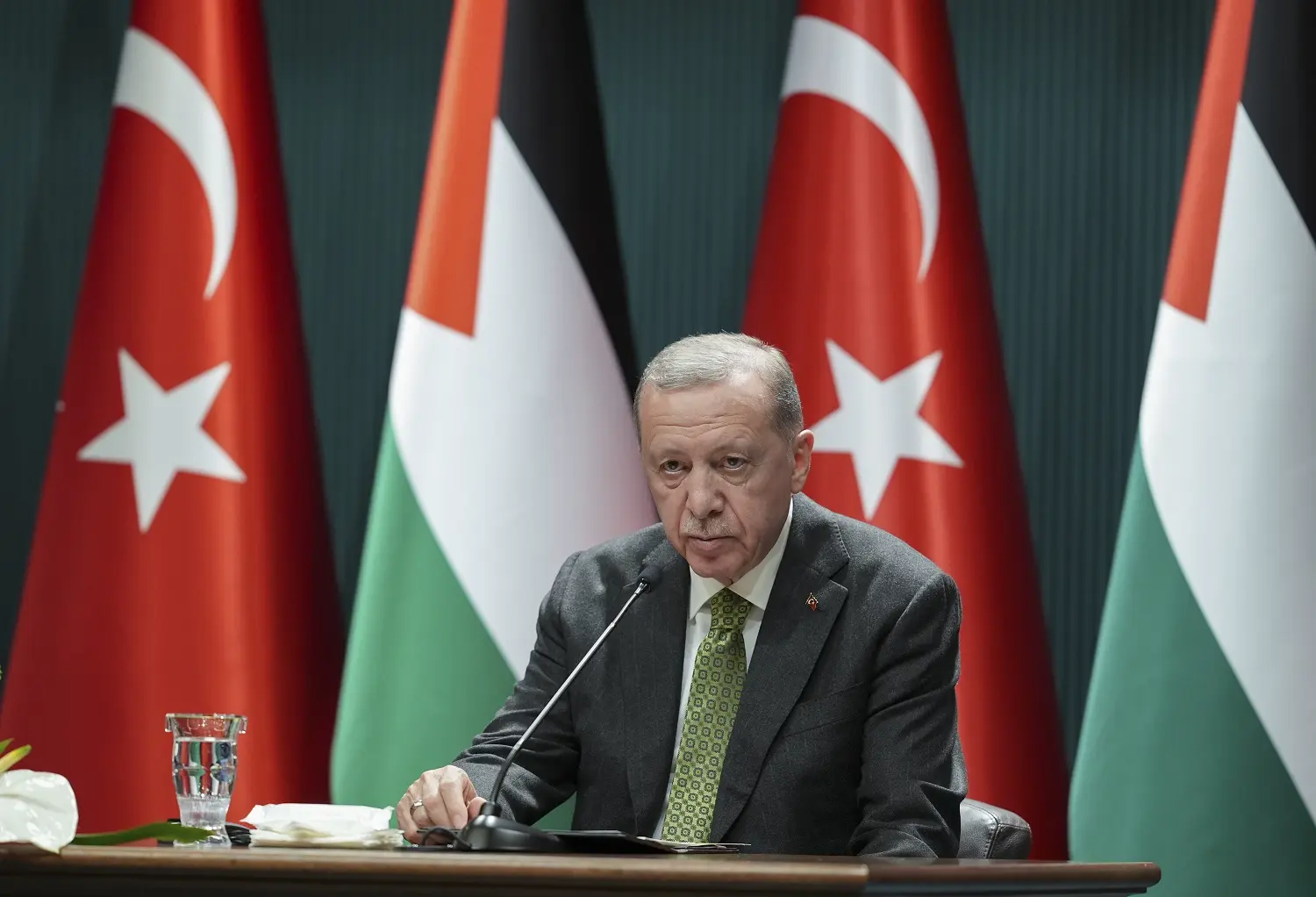
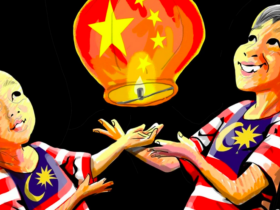

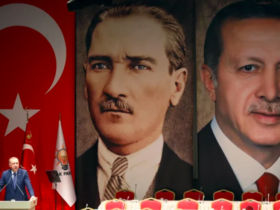
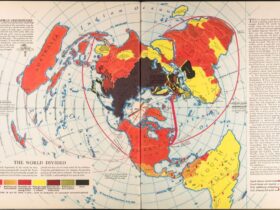
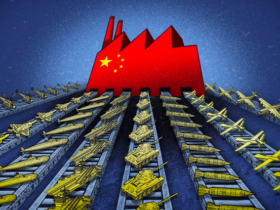
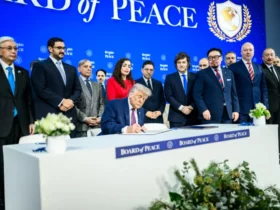
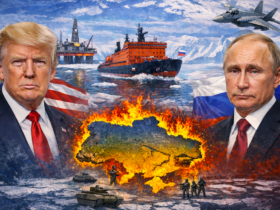


Leave a Reply